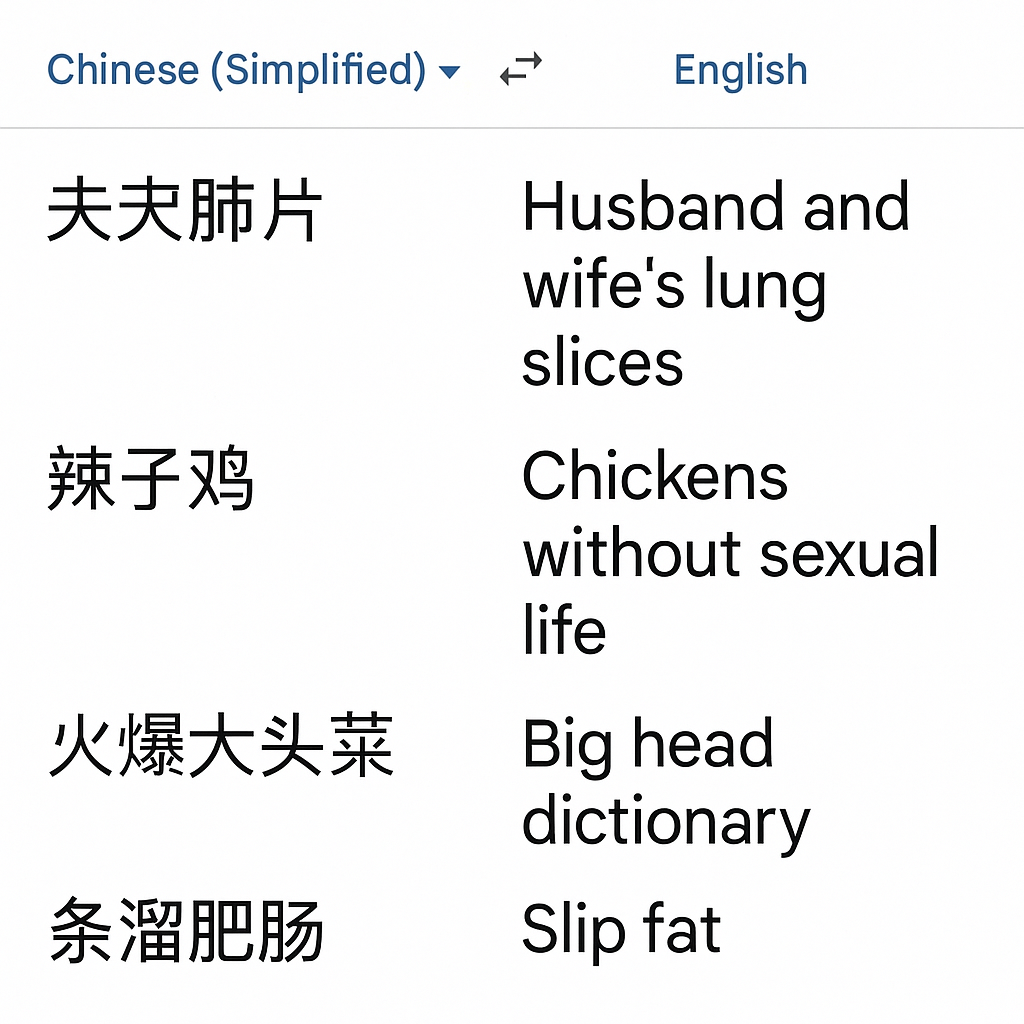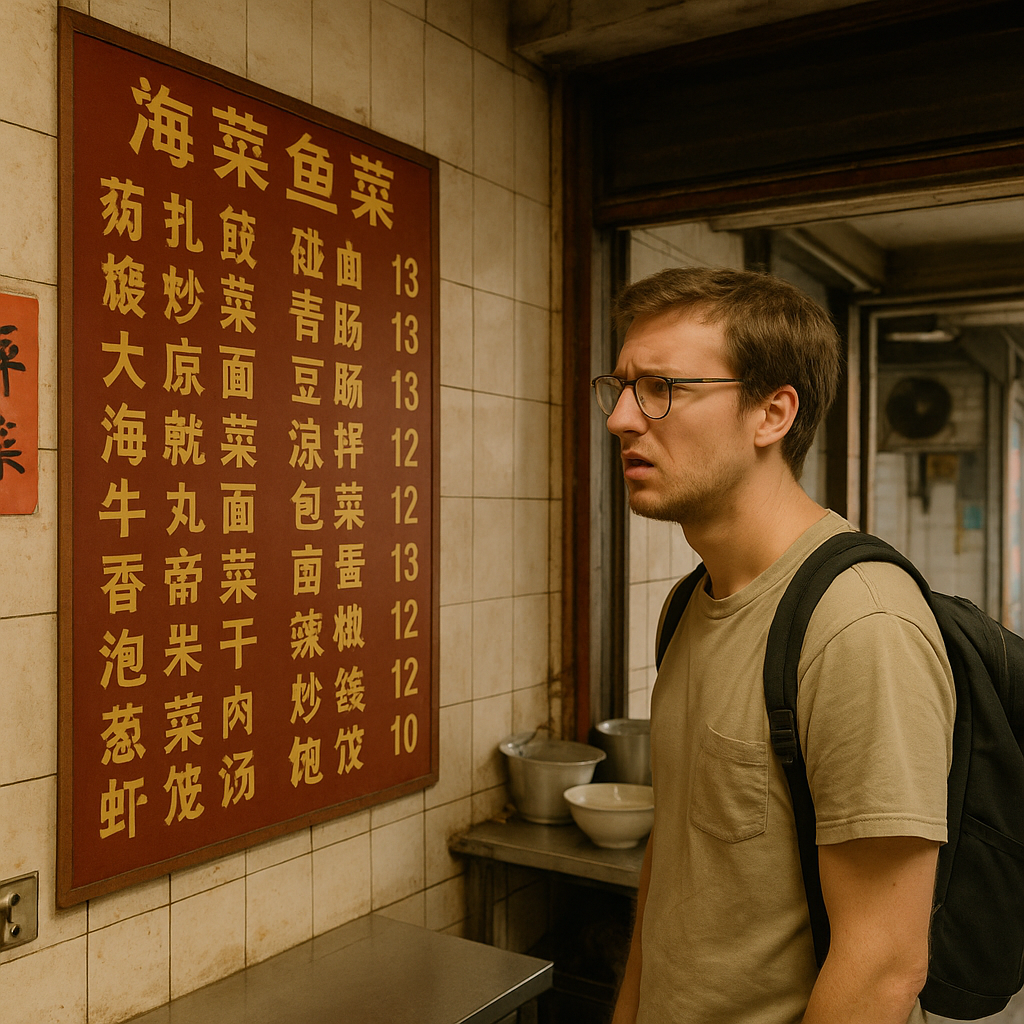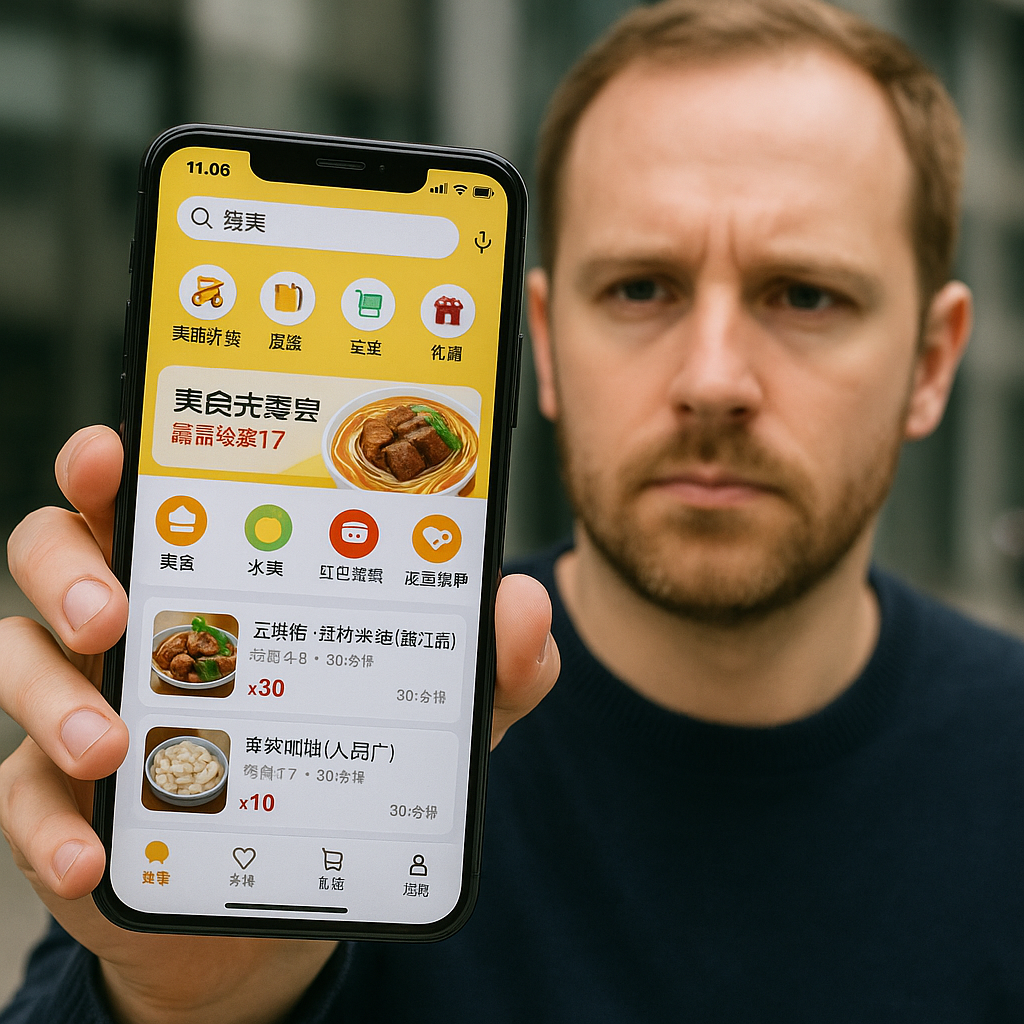Once upon a time, every traveler to China carried a small, dog-eared Mandarin phrasebook tucked into their backpack. Pages filled with basic phrases like "Where is the bathroom?" or "How much does this cost?" were a lifeline in a world with unfamiliar characters and little English signage. But in today's digital age, the phrasebook has quietly become obsolete—and for good reason.
The Trouble with Traditional Phrasebooks
Phrasebooks are static tools. They're handy in theory but often fall short when real-life conversations take unexpected turns. Try finding a way to ask for oat milk in your latte, or to explain that you're vegetarian but can eat eggs—most printed guides won't go that deep. Worse, their vocabulary is limited, and pronunciation guides can be misleading for tonal languages like Mandarin.
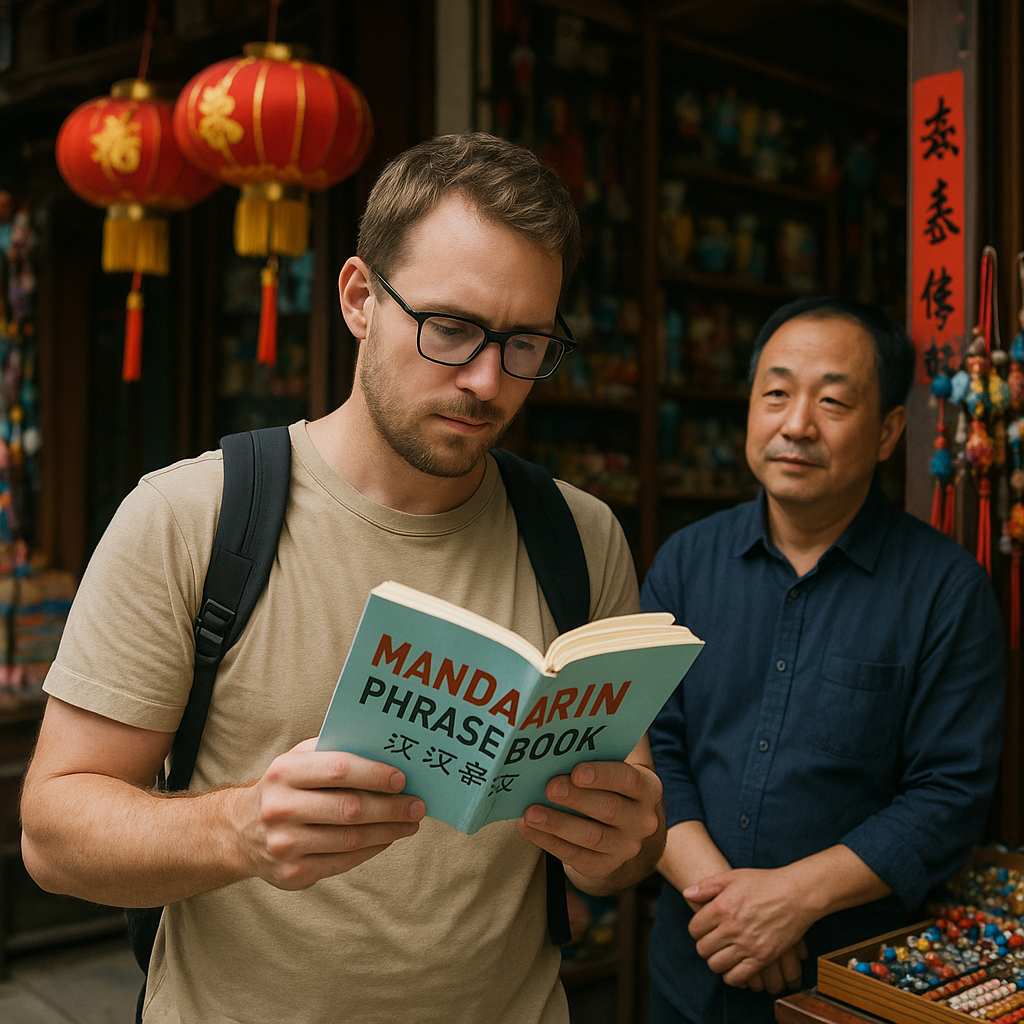
Even if you memorize a few useful expressions, navigating the tones and rhythm of Mandarin can be intimidating. A simple change in tone can transform "mǎ" (horse) into "mā" (mother), "mà" (scold), or "má" (hemp). Say it wrong, and you might be accidentally asking to scold someone's mother about hemp instead of finding a train station.
Modern Alternatives That Actually Work
Thanks to smartphones, the language barrier is no longer a brick wall. Apps like Pleco and Google Translate allow for on-the-go translation of text, speech, and even handwriting. Many now support camera-based translations that let you point your phone at a menu and instantly understand what you're reading.
Still, these tools are far from perfect. Translations can be clumsy. They might not capture context or slang, and they certainly don't offer cultural etiquette—like when it's rude to ask a question too directly, or how to refuse a drink without offending your host.
Why Nihao Travel Is the Best Replacement
This is where Nihao Travel steps in. More than a translation tool, it's a live, context-aware assistant that empowers you throughout your journey in China. Whether you're trying to read a sign, ask for a rare ingredient at a market, or negotiate a taxi fare, you can:
- Send a photo and ask "What does this mean?"
- Dictate your situation and get back polished Mandarin phrases
- Understand the social context—when to bow, when to smile, when to pay
- Chat in real time with someone who knows what you're trying to do
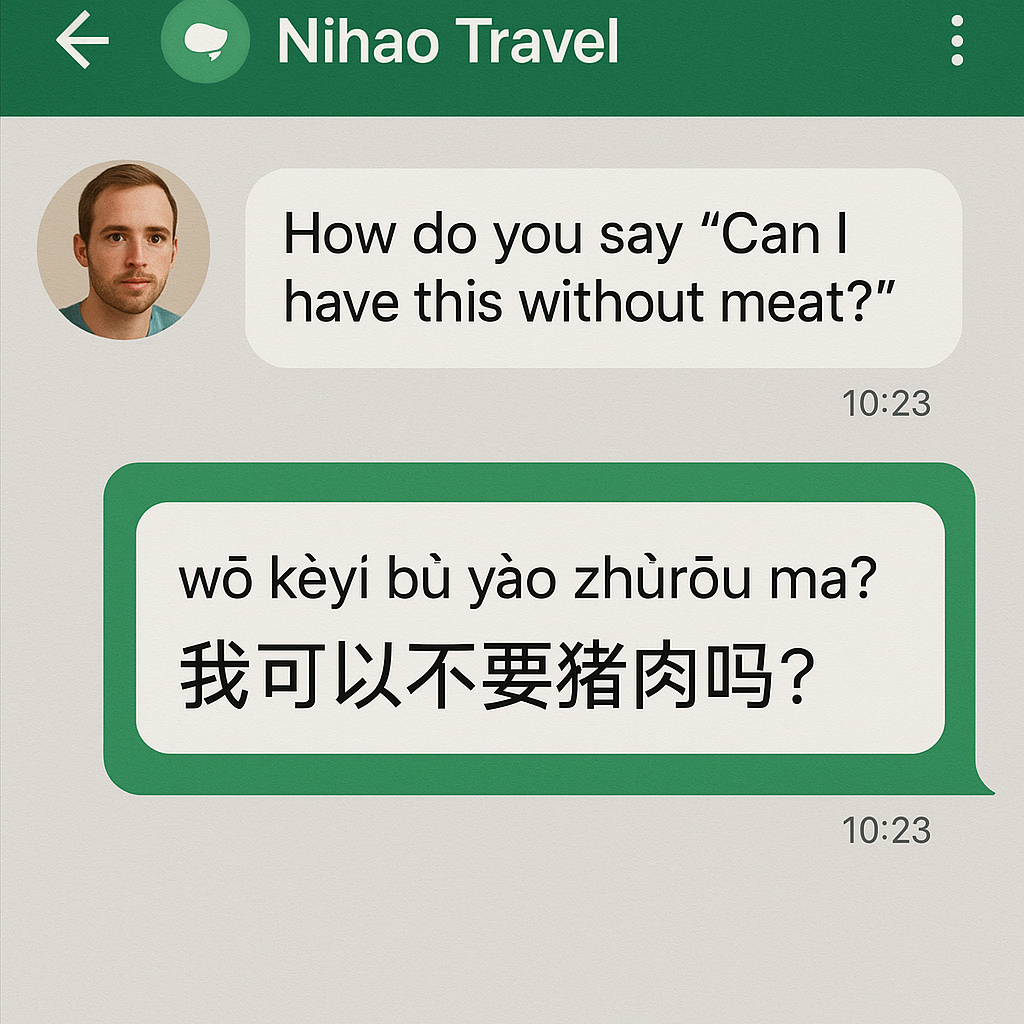
Example: Ordering Street Food with Confidence
Imagine you're at a night market in Chengdu. The smells are intoxicating, but you're vegetarian and unsure what's in the spicy skewers sizzling in front of you. Rather than flipping through a phrasebook to find "Is this meat?", you snap a picture, tell Nihao Travel "I'm vegetarian, but I eat eggs," and instantly get a tailored sentence you can show or say:
> "我吃素,但可以吃鸡蛋。请问这个有没有肉?"
>
> Wǒ chīsù, dàn kěyǐ chī jīdàn. Qǐngwèn zhège yǒu méiyǒu ròu?
>
> "I'm vegetarian but I eat eggs. Does this have meat?"
Moments later, you're munching on a tofu skewer, feeling confident and respected—not like an outsider lost in translation.
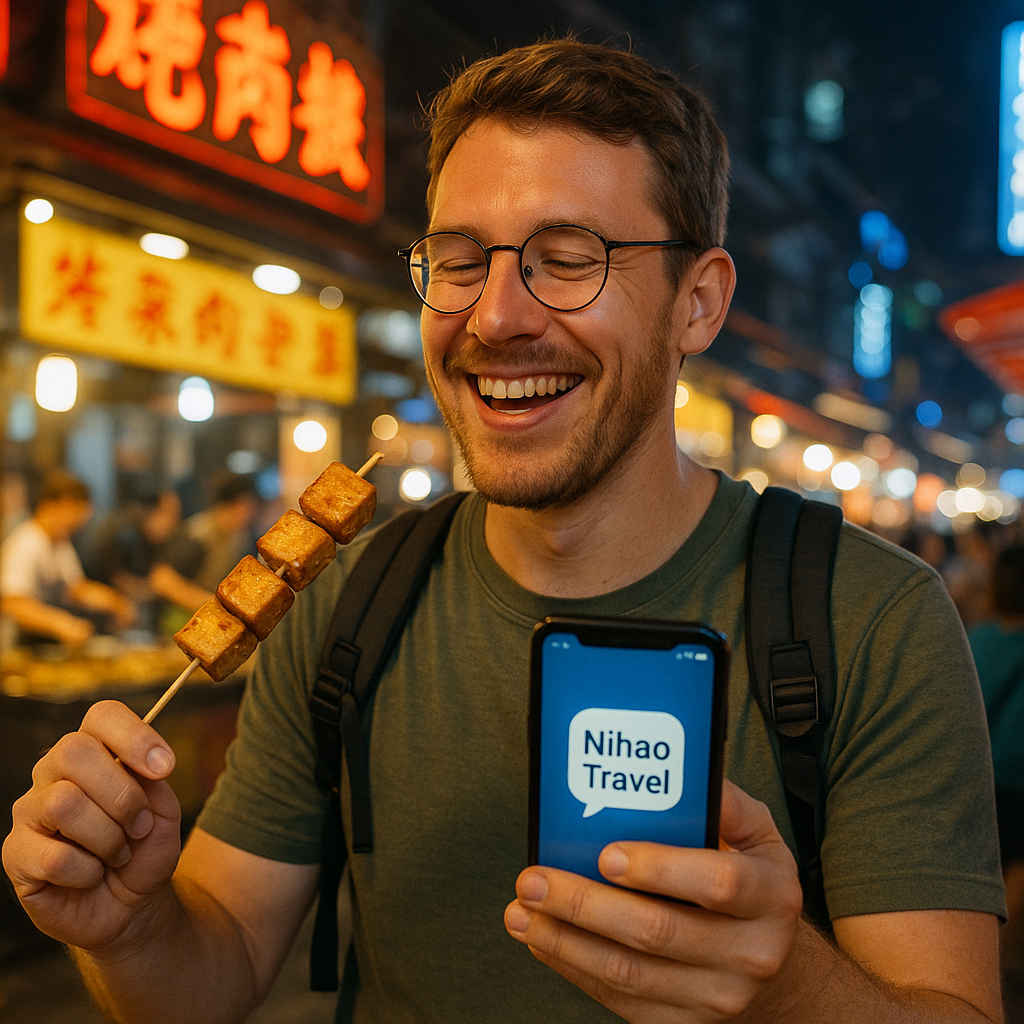
Handling Emergencies Without Panic
Language tools become vital in stressful moments. If you need to visit a hospital or police station, you don't want to rely on broken Mandarin. Nihao Travel can provide emergency phrases instantly, call ahead on your behalf, or help you navigate the bureaucracy—all in clear, calm language.
Beyond Words: Culture and Nuance
Chinese culture is layered and contextual. For instance, asking someone's age or marital status might be normal conversation locally, but could feel invasive to a foreigner. Conversely, expressing too much individualism or being overly blunt can come off as rude.
A phrasebook might give you "Where is the train station?" but won't tell you that it's polite to ask indirectly or to avoid certain gestures. Nihao Travel offers real-time etiquette guidance, ensuring that you not only speak the right words, but say them the right way.
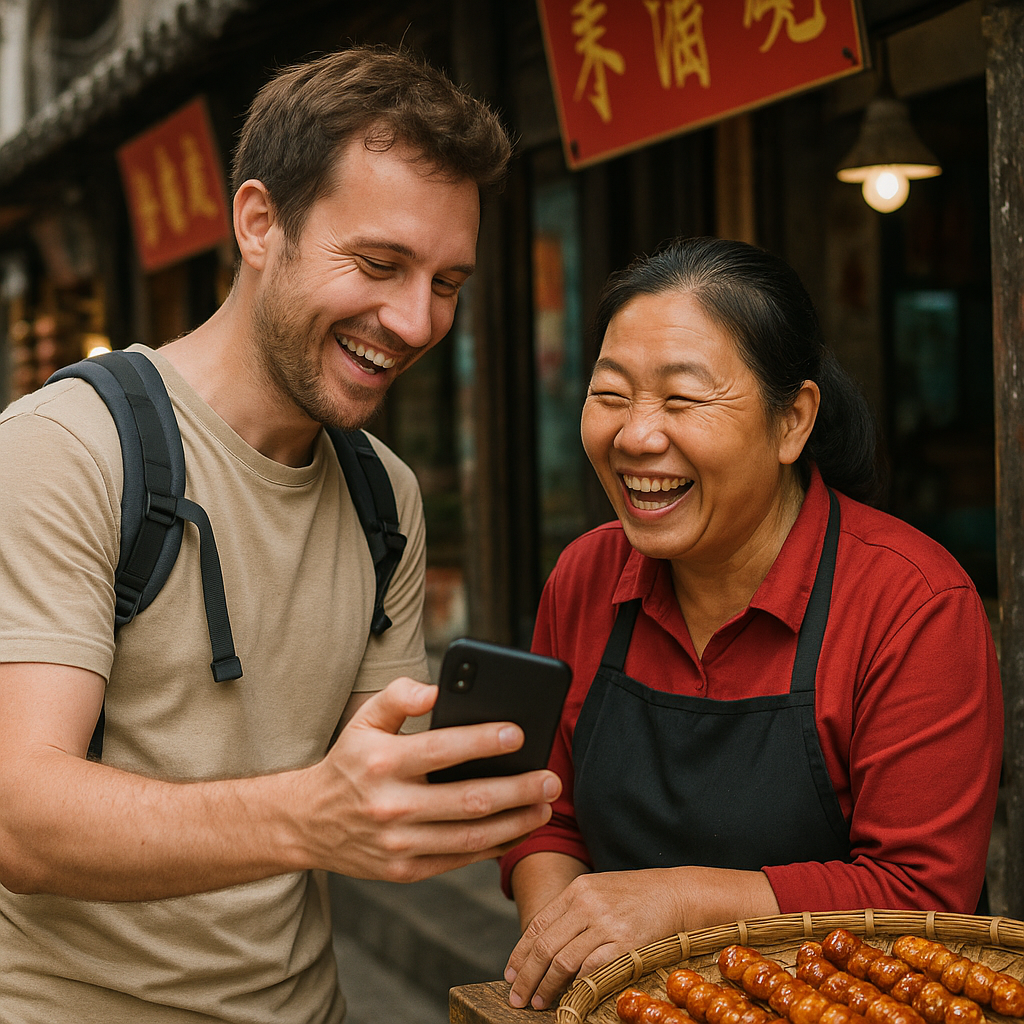
When Google Translate Isn't Enough
While translation apps are useful, they often fail in areas without strong internet, and their translations can be overly literal. For instance, trying to translate "I'd like to browse without buying" might yield an awkward sentence that confuses the shopkeeper. Nihao Travel offers fluid, natural phrasing tailored to the situation—not just robotic translations.
Local Slang and Regional Differences
Mandarin itself changes flavor across China. In places like Chongqing or Tianjin, local dialects and slang might make standard Mandarin less useful. Nihao Travel adapts, offering context-specific language help based on where you are—not just textbook phrases.
Comparison Table
| Feature | Phrasebook | Nihao Travel |
|---|---|---|
| Custom Phrases | Limited to book content | Unlimited, real-time chat |
| Pronunciation Help | Phonetic approximations only | Voice messages and tone guidance |
| Emergency Support | No | Yes, 24/7 |
| Cultural Context | No | Yes |
| Live Assistance | No | Yes |
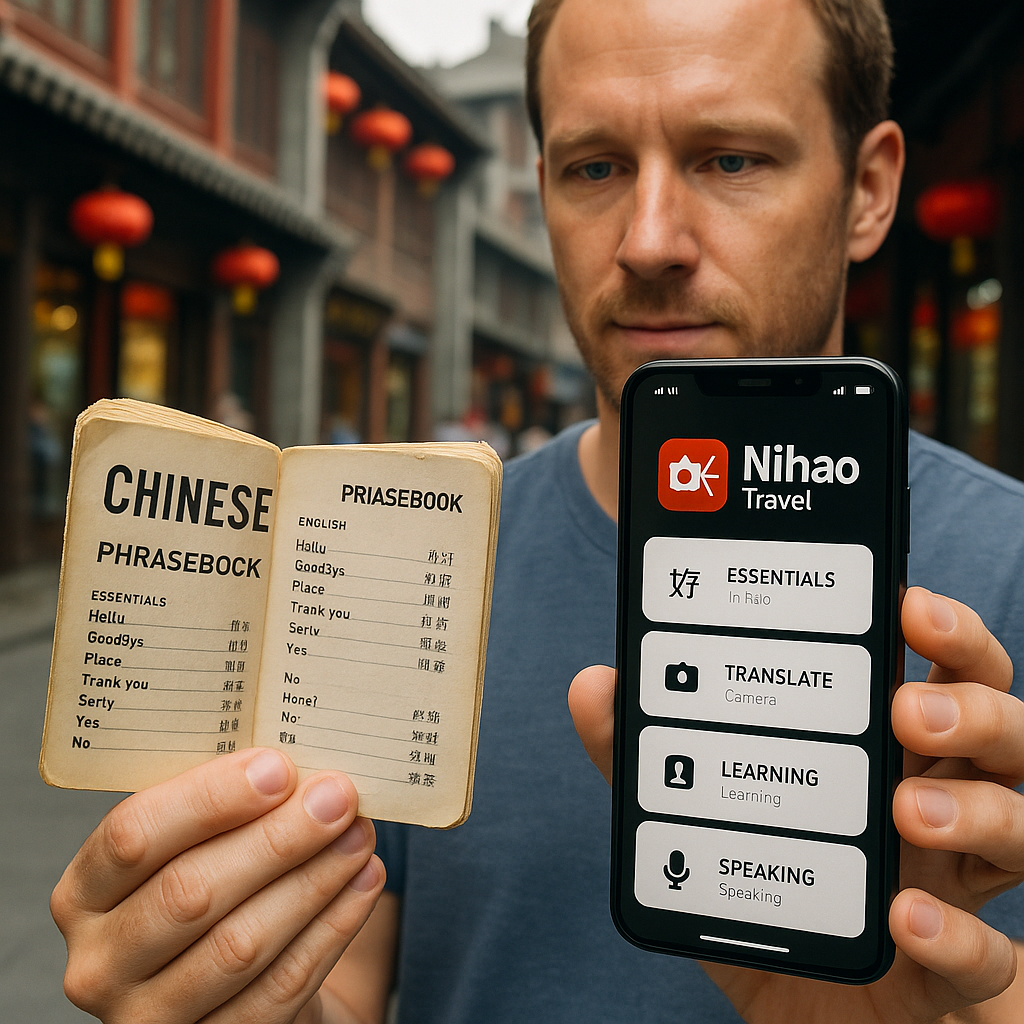
Conclusion: Say Goodbye to Phrasebooks
Travelers no longer need to rely on stiff, generic phrases and outdated books. With real-time support, natural translation, and cultural guidance, Nihao Travel helps you communicate naturally and confidently, no matter the situation. It's like having a fluent, culturally-aware travel companion in your pocket—ready for anything.
Say goodbye to flipping pages under pressure. Say hello to stress-free, connected travel in China.
Ready for seamless communication in China? Get Nihao Travel support
